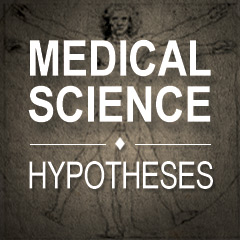Get your full text copy in PDF
Muhammad Iqbal, Alaa Alghamdi, Fouad Alghamdi, Khalid Regaiey, Shahid Bashir
Med Sci Hypotheses 2018; 5:20-24
DOI: 10.12659/MSH.911969
ABSTRACT: Autism spectrum disorder (ASD) is a neurodevelopmental disorder that affects at least 1% of the population, and its prevalence has increased in recent years. There is a great need for raising awareness of ASD, better diagnosis, and, most of all, evidence-based interventions to improve quality of life of ASD individuals and their caregivers. There is increasing evidence that training of parents, teachers, and other professionals working with children with autism provides better interventions for use with ASD individuals. Given that not all interventions work for all children, studies with high-risk children showed that eye-tracking and EEG measures related to a typical socially rewarding stimulus could predict diagnosis. Thus, we postulate that the combination of training and assessment by eye-tracking and EEG could predict and assess intervention outcomes and manage this essential neurodevelopmental disorder in a better and more timely manner.
Keywords: Autistic Disorder, Neurofeedback, Neurosciences
